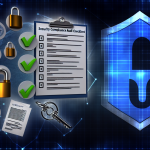
Top 10 Must-Have Items on Your Security Compliance Audit Checklist
November 4, 2025
Navigating the World of Security Compliance: Your Comprehensive Audit Checklist
November 5, 2025
In today’s digital landscape, data breaches and cyber threats are increasingly common. The need for robust security measures has never been more pressing. While investing in advanced technology and tools is crucial, the foundation of an effective security framework often lies in the culture of the organization itself. Building a robust security culture requires an integrated approach that involves education, awareness, and a commitment from all levels of the organization.
Understanding Security Culture
Security culture refers to the attitudes, values, and behaviors that shape how individuals in an organization perceive and respond to security issues. When security is viewed as a shared responsibility, rather than just an IT issue, it fosters a proactive approach in managing risks and protecting sensitive information.
Key Components of a Robust Security Culture
-
Leadership Commitment
Leaders set the tone. When top management prioritizes security, it sends a clear message to all employees about its importance. Executives should actively participate in security training and encourage an open dialogue about security concerns.
-
Comprehensive Training Programs
Regular training sessions ensure that employees are aware of the latest threats and know how to respond. Training should be engaging and relevant, utilizing real-world scenarios that employees may encounter. Incorporating gamification elements can also enhance engagement and retention.
-
Clear Communication
Developing a transparent communication strategy helps in disseminating security policies and procedures. Regular updates on security best practices and incident reports keep the issue at the forefront of employees’ minds. Utilize newsletters, intranet updates, and regular meetings to reinforce key messages.
-
Role-Based Security Awareness
Different roles within an organization encounter unique security challenges. Tailoring training and resources to specific roles ensures that employees receive the information that is most relevant to their daily tasks. This targeted approach also emphasizes the specific responsibilities of each role in maintaining security.
-
Encouraging Reporting and Feedback
Creating a “speak up” culture where employees feel comfortable reporting security incidents or suspicious activities without the fear of backlash is critical. Establishing anonymous reporting mechanisms can help in identifying vulnerabilities and addressing potential threats before they escalate.
-
Regular Assessments and Drills
Conducting regular security assessments and drills helps to evaluate the effectiveness of the current security culture. Simulated incidents can reveal weak spots in the organization’s defenses and provide valuable insights for improvement.
-
Recognition and Rewards
Acknowledging individuals or teams that demonstrate exemplary security practices reinforces the importance of security within the culture. Implementing a reward system for employees who actively promote security measures can increase participation and enthusiasm.
Building a Continuous Improvement Mindset
A robust security culture isn’t built overnight. It requires ongoing commitment and adaptation to the evolving threat landscape. Encourage a mindset of continuous improvement, where security practices are regularly evaluated, and feedback is utilized to enhance strategies.
The Role of Technologies
While technology should not replace a strong security culture, it plays an important support role. Implementing tools such as intrusion detection systems, data loss prevention software, and secure access controls help reinforce the policies in place. Organizations should balance the human factor with technology to create a comprehensive security strategy.
Conclusion
Building a robust security culture is an ongoing process that requires the collective efforts of everyone in an organization. By fostering an environment of awareness, education, and communication, organizations can significantly enhance their security posture. As cyber threats continue to evolve, so too must our approach to safeguarding sensitive data and maintaining trust in an increasingly connected world. A strong security culture can be the ultimate defense against potential risks, turning every employee into a vigilant guardian of the organization’s assets.






